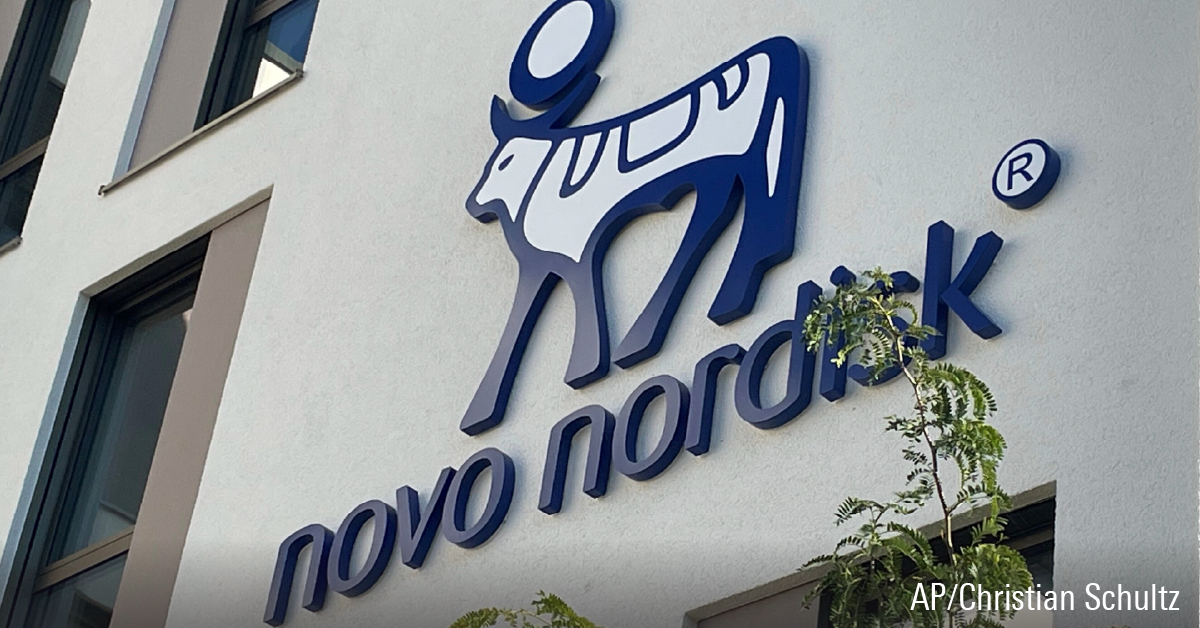Novo Nordisk Earnings: Wegovy Supply, Obesity Pipeline in Focus
Maintaining fair value estimate on Novo Nordisk stock.

Morningstar Key Stats for Novo Nordisk
- Morningstar Rating: 2 stars
- Fair Value Estimate: $86.00
- Economic Moat: Wide
- Morningstar Uncertainty Rating: High
What We Thought of Novo Nordisk’s Earnings
We’re maintaining our DKK 600/$86 fair value estimates for Novo Nordisk NVO following second-quarter results that were slightly below our very high expectations, but not enough to significantly sway our full-year expectations.
In the first half of 2024, Novo Nordisk’s revenue grew 25% at constant currencies, with 32% GLP-1 diabetes growth (largely Ozempic) and 37% GLP-1 obesity growth (Wegovy). Management slightly raised its expected 2024 sales growth by 2 percentage points at the midpoint to 22%-28% at constant exchange rates (from a prior range of 19%-27%). Excluding an impairment related to a failed trial of cardiovascular drug ocedurenone, management’s 2024 operating profit growth expectations increased by roughly 4 percentage points, and we think the firm looks on track to produce solid double-digit performance in line with the midpoint of guidance in the second half.
Novo Nordisk Stock vs. Morningstar Fair Value Estimate
We still think Novo’s GLP-1 business across therapeutic areas will peak above $70 billion in 2031, although we remain less confident in its ability to grow beyond the 2032 patent expiration for semaglutide, the molecule in Ozempic and Wegovy.
Novo Nordisk Stock Overvalued
While we continue to see Novo Nordisk as a wide-moat firm, with strong intangible assets surrounding its cardiometabolic business, we think high obesity drug demand and supply constraints have pushed the stock above its intrinsic value. In our obesity forecast, we’re weighing the upside from potentially positive data later this year for monlunabant and CagriSema against downside from poor compliance rates and increased competition on the horizon.
In 2025, semaglutide data in Alzheimer’s stands out as a wild card, but potential Medicare negotiation beginning in 2027 could make it more difficult to realize significant sales in this indication. We were disappointed in the delay for once-weekly insulin Awiqli in the US, with a refiling now expected in 2025, although we still think this product and a semaglutide combination could support diabetes sales.
We expect price declines to accelerate in the obesity market as access expands to more patients with private insurance and Medicaid. Recent data from several challengers looks competitive with data for Wegovy and Eli Lilly’s Zepbound, and we think launches in 2027-29 could begin to erode share and put further pressure on price. We’re most concerned about Novo’s reliance on peptide manufacturing, which requires significant fill-finish capacity and larger volumes if it intends to launch an oral version of semaglutide (it is still unclear whether it will launch this product in obesity, despite positive phase 3 readouts). Competitors such as Lilly, Roche, Structure, and AstraZeneca have oral small molecule programs that would be much easier to manufacture at large scale.
The author or authors do not own shares in any securities mentioned in this article. Find out about Morningstar’s editorial policies.

/s3.amazonaws.com/arc-authors/morningstar/558ccc7b-2d37-4a8c-babf-feca8e10da32.jpg)
/cloudfront-us-east-1.images.arcpublishing.com/morningstar/CFV2L6HSW5DHTFGCNEH2GCH42U.jpg)
/cloudfront-us-east-1.images.arcpublishing.com/morningstar/7AHOQA64TFEQDMYMIMM6VUHYLY.png)
/cloudfront-us-east-1.images.arcpublishing.com/morningstar/JA7LQ2INFNFTZFBJLSDUZGIPJQ.png)
:quality(80)/s3.amazonaws.com/arc-authors/morningstar/558ccc7b-2d37-4a8c-babf-feca8e10da32.jpg)